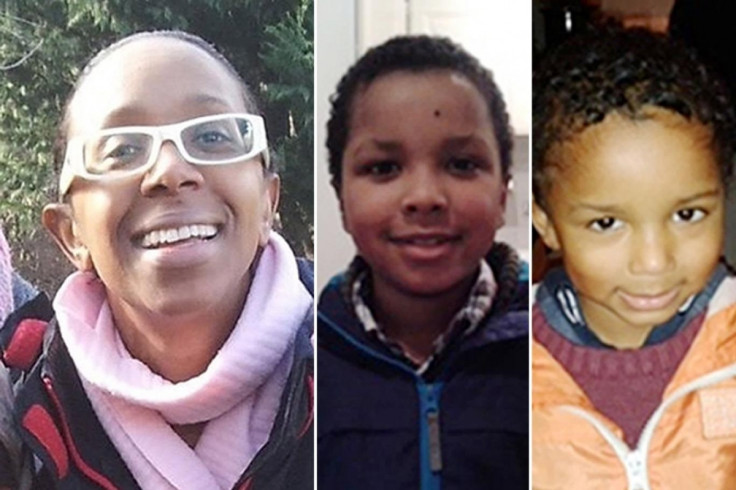Sian Blake: How many more women and children must be murdered before we act on domestic violence?

The death of EastEnders actress Sian Blake and her two young children is being treated as a triple murder inquiry. After disappearing in mid-December 2015, three bodies were found in buried in the garden of Blake's south-east London home. All three died from head and neck injuries.
One suspect, 48-year-old Arthur Simpson-Kent who was Blake's boyfriend, is being held in Ghana after he was arrested by police at a beach resort and is set to appear before a court. The victim wanted to leave him, according to her family – but hadn't yet done so.
If found guilty, the case is tragically reminiscent of so many women killed by their partners in Britain. Two women are killed every week by domestic violence, while one in four women will experience abuse from behind closed doors in their lifetimes. According to reports, a member of Blake's family called the NSPCC in December 2015 warning the family may be at risk of harm. Yet the family home was not searched until 19 days later.
This is not the first time a warning has been sounded, yet has gone unheeded. Recent reports have highlighted that the police have failed to grasp the vast scale of the problem of domestic violence – which has affected the quality of investigations.
In December 2015, Her Majesty's Inspectorate of Constabulary said police leaders were "overwhelmed" by a staggering increase in domestic violence reports. Nine forces were assessed as having a "cause of concern" – while a further 15 had "areas for improvement". Some of the issues raised included poor identifying and monitoring of repeat victims, forces being unable to provide data on the number of domestic abuse arrests and issues of trust.
The report found large numbers of victims who felt responding officers did not always understand the dynamics of domestic abuse, despite the first contact a victim has with the police being essential to both the investigation and the ability of the victim to support prosecution.
Sandra Horley, chief executive of domestic violence charity Refuge, said the police needed to do more to overcome a "canteen culture" that has bred negative attitudes to women and hindered its ability to investigate abuse cases. The resulting death toll of this culture is devastating. According to the latest ONS statistics released in 2015, 1.4 million women suffered domestic abuse in 2014.
In 2013, 29-year-old Linah Keza was killed in her east London home on a July morning by her ex-boyfriend, David Gikawa. After tolerating his abuse, breaking up, then getting back together, she finally ended the relationship with the view of a fresh start from fear, threats and control. Motivated by jealousy, Gikawa stabbed to death in front of their two-year-old daughter. He was sentenced to life for murder, leaving Keza's family and friends to cope with the dreadful loss.
"My friend Linah was murdered by a man who claimed to love her," says Vicky Walker, one of Keza's friends. "Tired of his threats, violence and control, she had ended the relationship when he broke in to their former home and killed her. Family and friends knew the risks of her leaving a violent man. Linah had reported him to the police."
Yet, Walker says, her murder was not prevented. "Over and over reports of women killed by ex-partners show the police didn't do enough," she says. "That murder after murder was preventable. Society needs to change so men stop feeling entitled to decide whether women live or die and the police taking seriously the risks to women is an important step in that."
Even as new officers are trained how to appropriately deal with domestic violence, however, austerity is undermining the ability for vulnerable women to escape their abusers. As the government continues to cut, slash and squeeze budgets for essential women's services, refuges that provide not only a safe haven but also support, healthcare and everything else needed to rebuild a life, are shutting one by one.
Nearly a third of women who reach out to life-saving refuges are turned away because of a lack of space. In just one day in 2014, 112 women and their 84 children were turned away from a refuge because they could not be accommodated. Women are left with the implausible choice of a life on the streets, or returning home to an abusive partner, where they face violence and potentially death.
To make sure domestic violence is treated as urgently as any other crime is critical – whether it is better police protection, a thorough investigation or greater support to women's services that give the most vulnerable a chance to escape. Without this, women will continue to be murdered by men at an unprecedented rate, with their relatives, friends and children left behind to grieve.
"Unfortunately I believe Arthur was responsible for my sister and my nephews' deaths," Blake's sister Ava told Scotland Yard. "We have lost a generation. We can never replace them."
© Copyright IBTimes 2024. All rights reserved.






